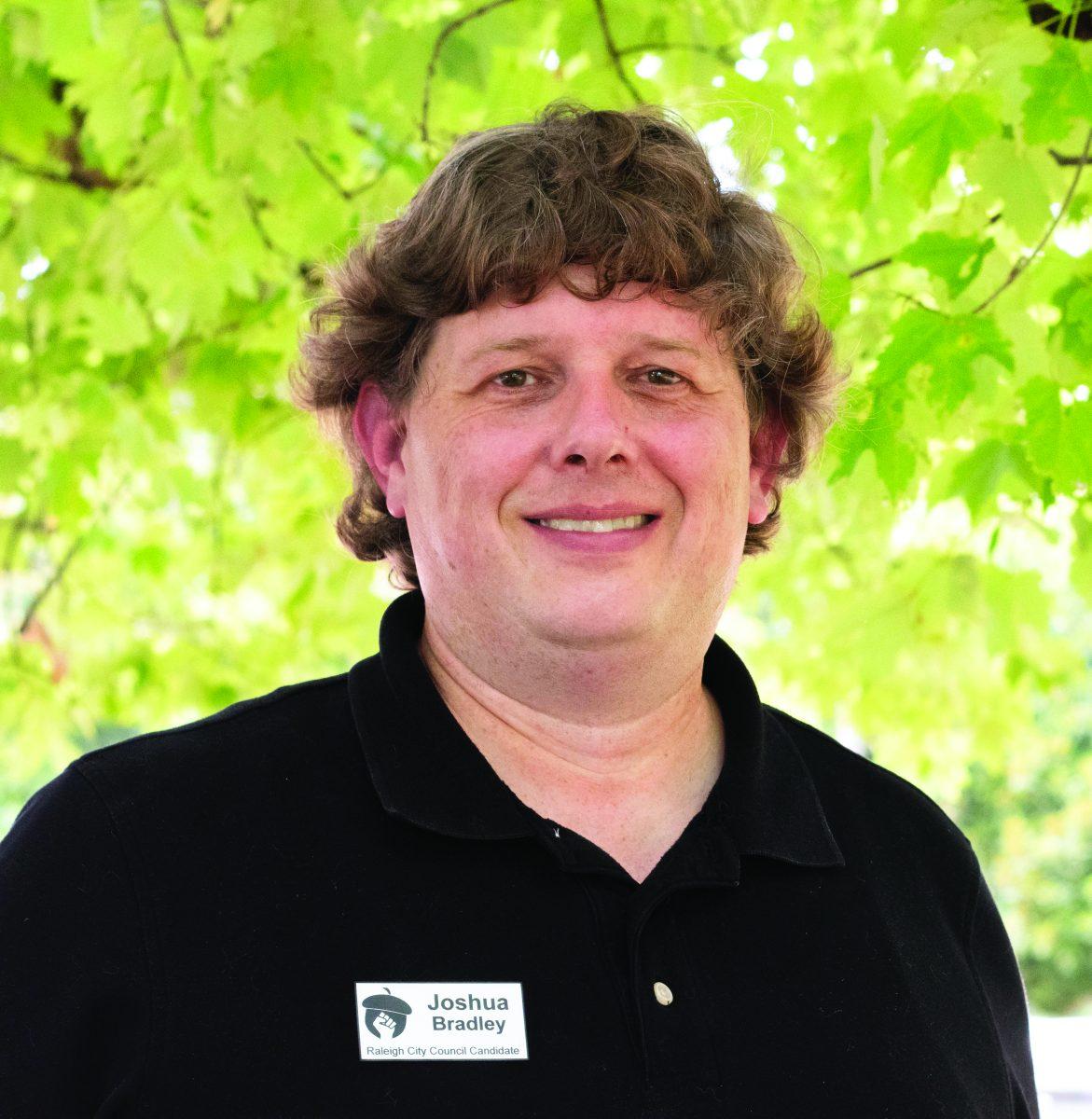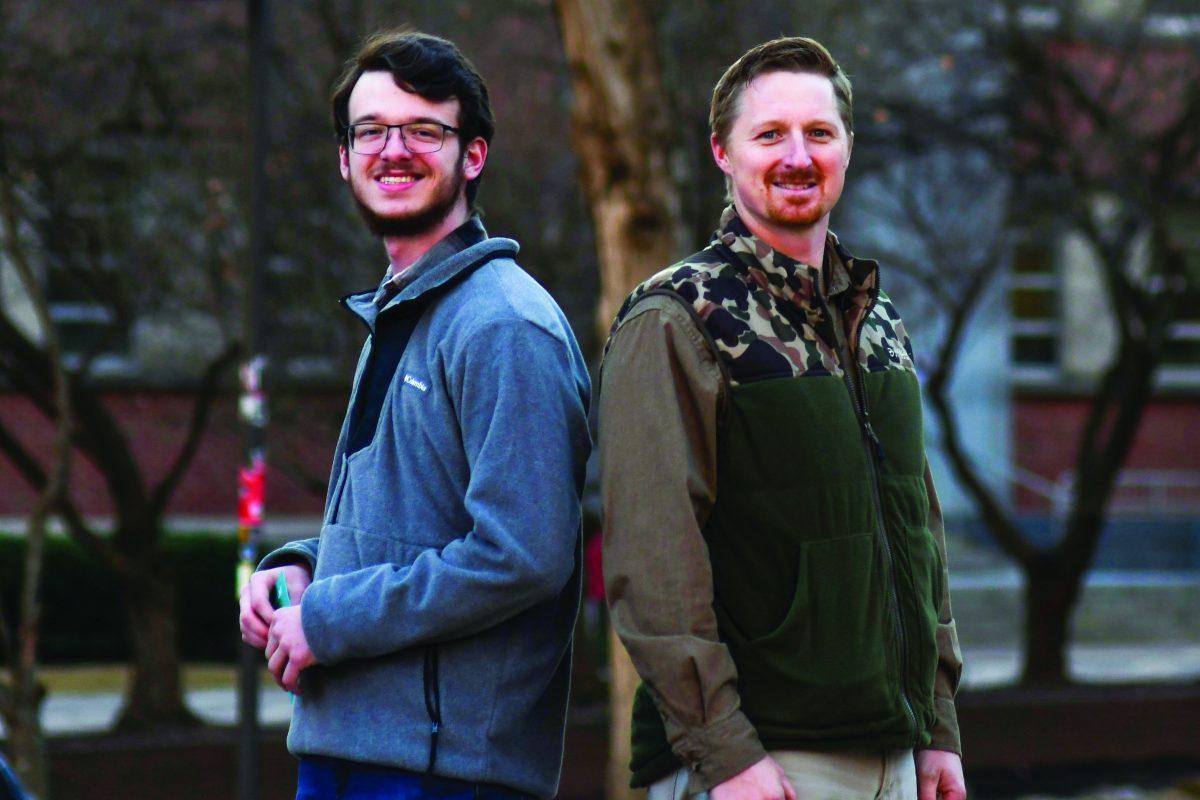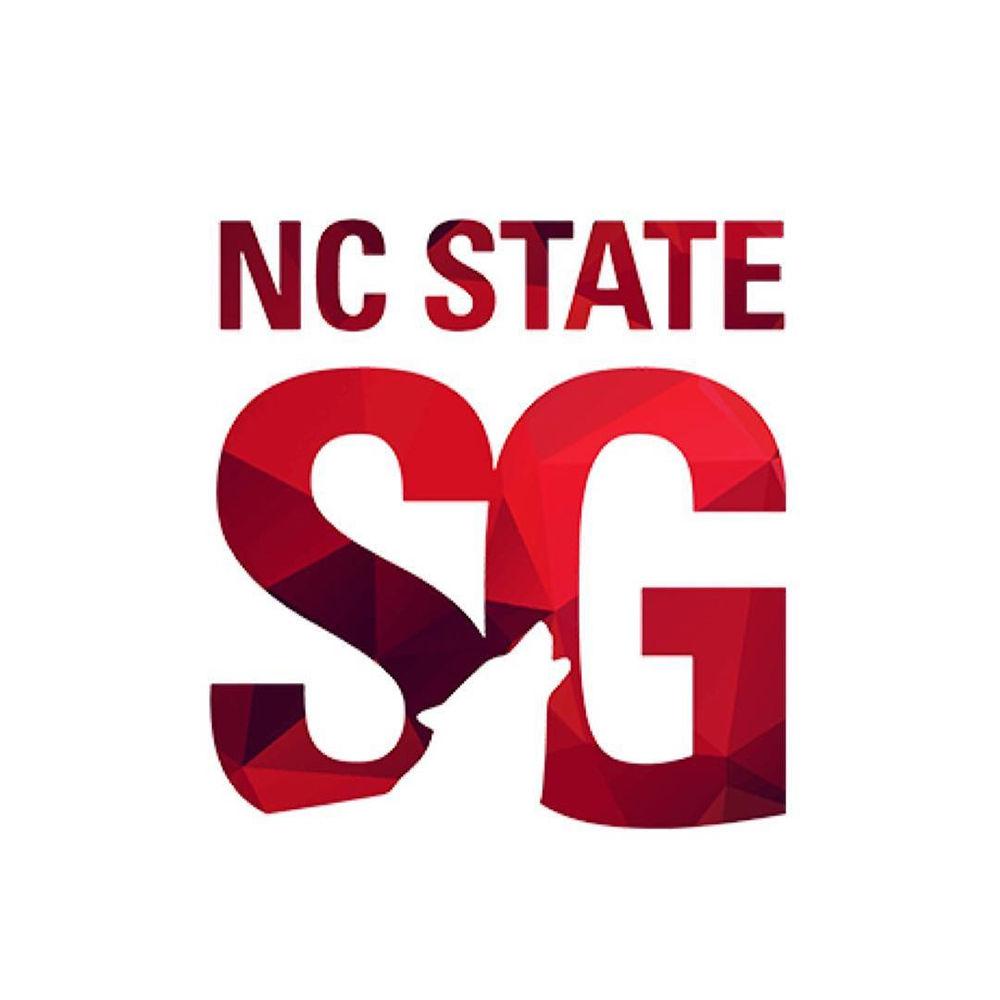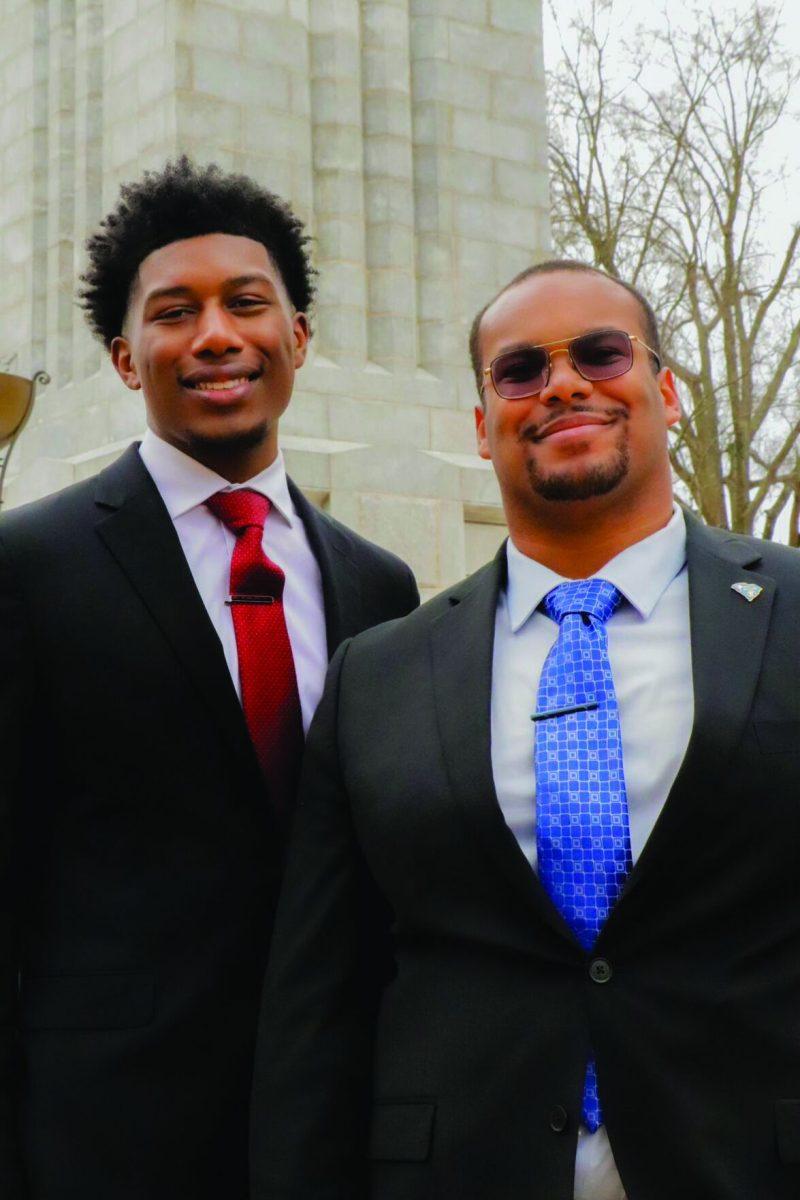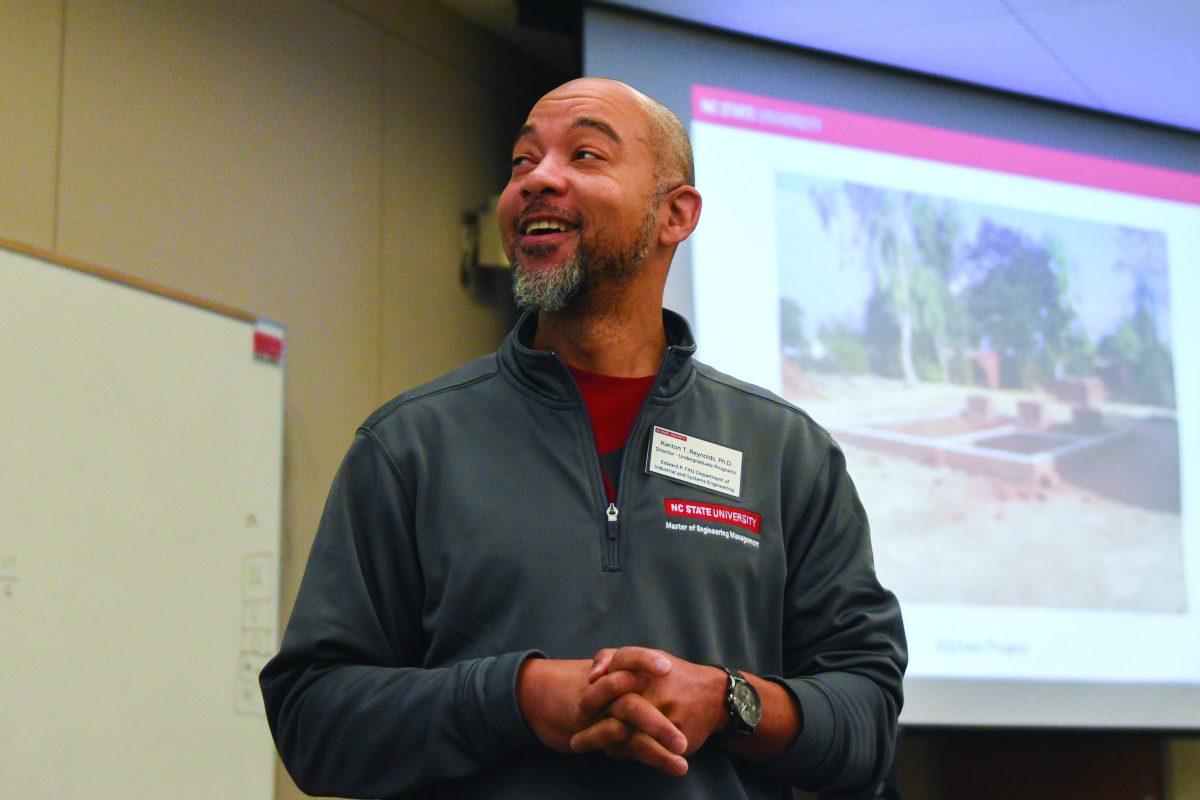Joshua Bradley, an accountant, is running for Raleigh City Council with a focus on workers’ rights, affordable housing and police reform. The self-described socialist hopes his second campaign for an at-large seat will resonate with voters concerned about rising inequality.
“The main reason I’m running is that I don’t feel anybody was addressing a lot of the issues we face today,” Bradley said. “We need to have a voice on the city council that isn’t focused on being scared of businesses and developers.”
Bradley said his priorities include expanding affordable housing, implementing crisis response programs separate from police and raising wages for city workers. He criticized what he sees as misplaced spending priorities by the current council.
“People say we can’t afford things, but the same people that say we can’t afford to invest more in low-cost and subsidized housing are okay with the fact that the city gave a $10 million grant to a private company to expand a pickleball court,” Bradley said.
Bradley said the city should act as a developer for subsidized housing on city-owned land rather than relying on private developers. He also wants to reallocate police funding toward alternative crisis response programs.
“When people are in crisis, you want somebody that’s trained to deal with that, not a twitchy cop with a gun that’s liable to shoot you without consequence,” Bradley said. “The advantage to that for the police is that they would not have to do that. They can focus on stuff in their wheelhouse.”
Bradley and Jeremy Gilchrist, a campaign team member and NC State alumnus, trace the foundations of their cause back to Occupy Raleigh in 2011, an offshoot of Occupy Wall Street movement formed in the wake of the 2008 financial crisis. They credit the movement with spurring their involvement in local politics and shaping their views on economic inequality.
“It did turn the narrative,” Bradley said. “It did point a spotlight on class and equity. We have more income inequality now than we’ve had since even the 1920s.”
As a self-funded socialist campaign, Bradley said he acknowledges fundraising challenges but remains committed to his platform. He received about 18,000 votes in 2022 and hopes to build on that support.
“Win or lose this election, I’m not going to moderate my views and water down what I believe to make it palatable to people,” Bradley said. “Part of the reason to run is to show there’s another way.”
The campaign focuses on canvassing working-class communities and maximizing limited resources to spread its message. Bradley criticized local media coverage, arguing socialist candidates face barriers in gaining exposure.
Bradley said what makes his campaign stand out is his unrelenting commitment to workers and a disdain for satisfying the needs of developers.
“My campaign is focused on the workers and the poor in Raleigh, and I’m not one that tries to be nice to everybody, but I’m not one that’s going to compromise on things that are going to put people out,” Bradley said. “And I think a lot of people are trying to be nice and but still maintain their agenda.”
Bradley said he urges college students to get involved in local politics, emphasizing the direct impact of city council decisions on issues like housing costs.
“It’s important to start young,” Bradley said. “If you have something that you believe in that needs to be addressed, you’ve got to be organized all year, because voting itself isn’t going to do it. It’s going to take organization and collective action.”
Gilchrist said students should view themselves as part of the city and vote accordingly during their time in college.
“You’re a part of the city, whether you live permanently here or not,” Gilchrist said. “You are a part of the fabric of the city, and I do think that the city should pay more attention to that so I definitely think It’s important to vote just on that alone, that you are a part of this city for at least four years of your life, which is a decent chunk of time.”


